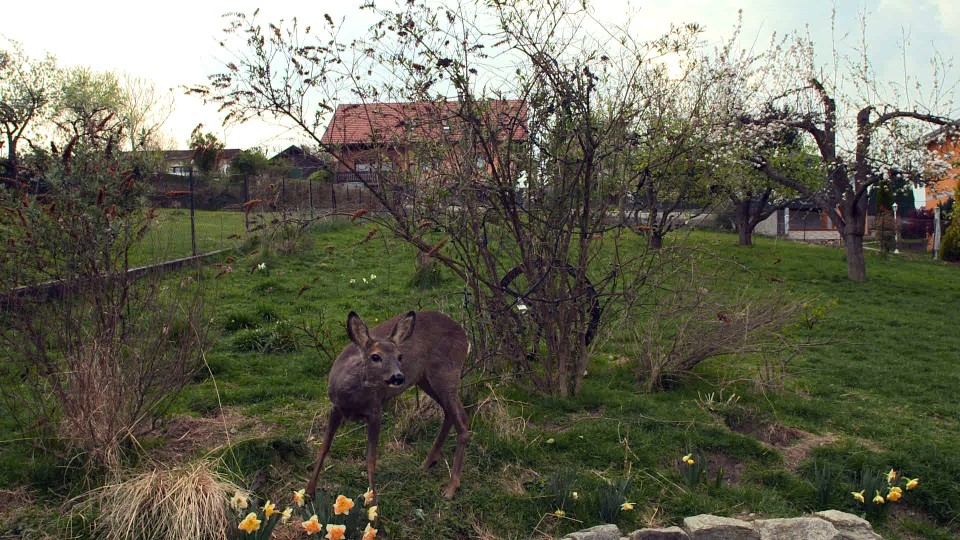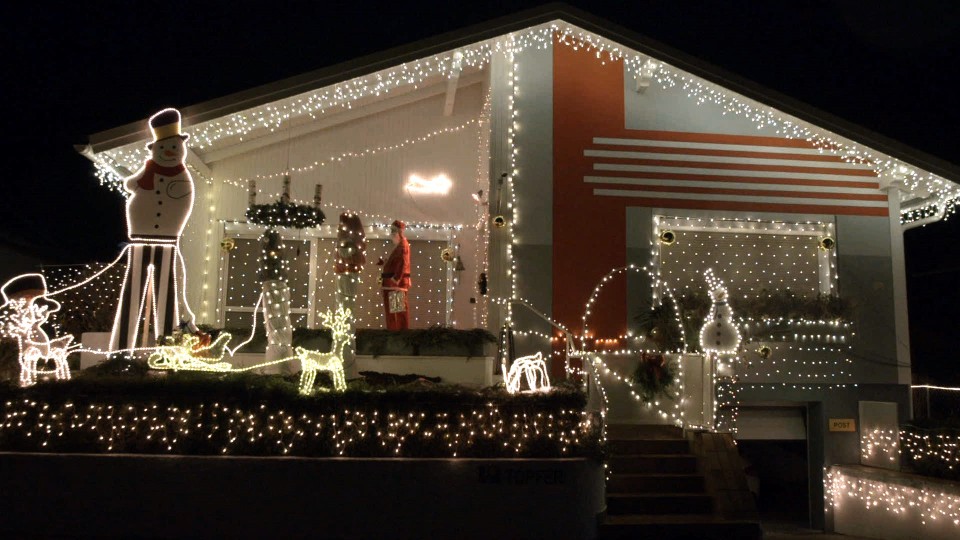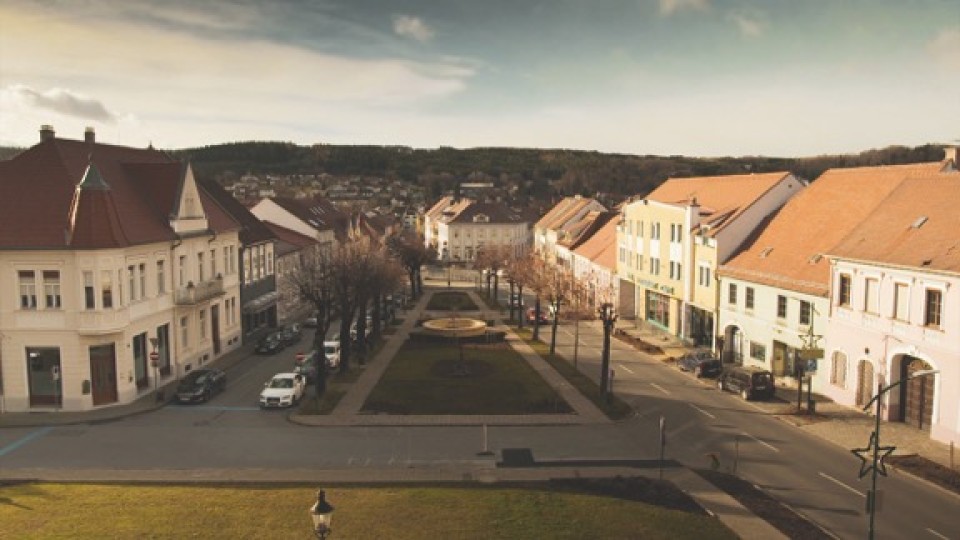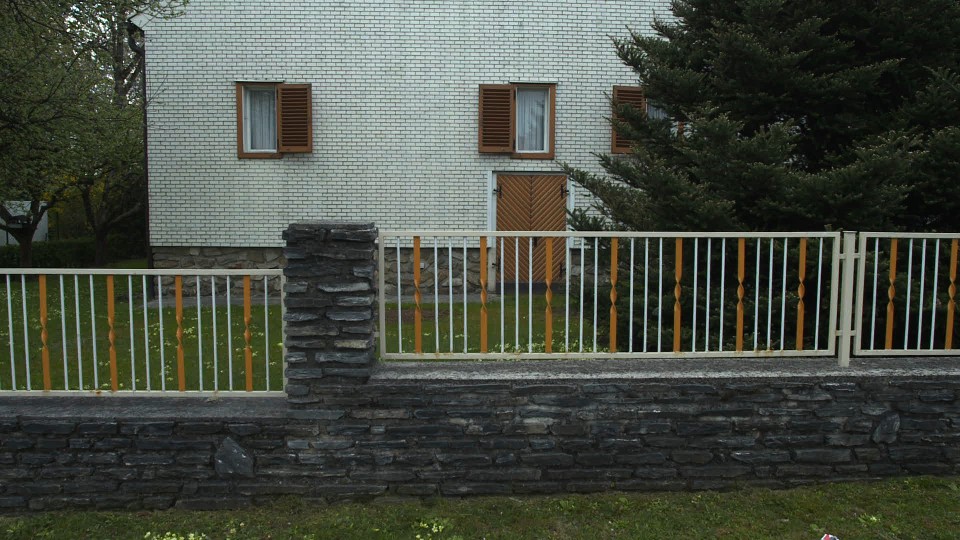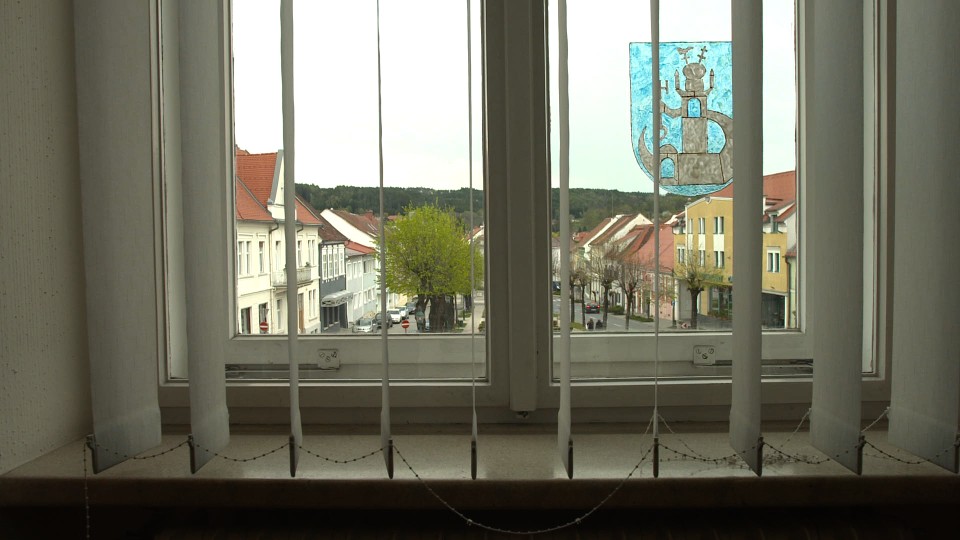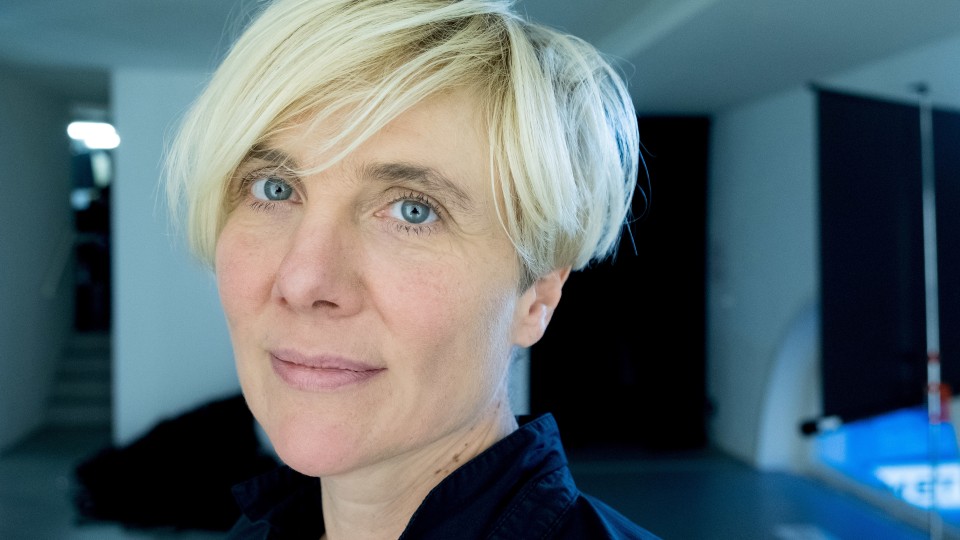You shot The Most Beautiful Place in Earth in Pinkafeld, a small town in the eastern Austrian state of Burgenland. There was no way of knowing in advance how turbulent
Austrian domestic politics would become while you were filming. What were your original reasons for choosing that town? Which
thematic considerations were dominant at the beginning of this film project?
ELKE GROEN: In September 2016 I had the impression that the Austrian presidential election, between Alexander Van der Bellen of the Green
Party and Norbert Hofer of the far-right Freedom Party (FPÖ), was leading to an extreme polarization of society. I was very
strongly reminded of Jörg Haider, the leader of the FPÖ, and his rise to power in the 1990s. I decided on the spur of the
moment to make a short film about the crucial second round of the presidential election, to capture this atmosphere. But then
the conversations I had turned out to be so gripping that I could see the potential for extending the project. So I stuck
to the subject and worked out a concept for a full-length film.
Did you choose Pinkafeld solely because it was the hometown of the far-right candidate Norbert Hofer, or were there other
reasons as well?
ELKE GROEN: In the first round of the presidential election 70% of the votes cast in Pinkafeld were for Hofer. However, I discovered that
the town itself was controlled by the Social Democratic Party of Austria (SPÖ) which had an absolute majority among councilors.
So I became interested in how the values of the difficult political parties are communicated these days, and what it’s like
when a local politician appeals to identity issues.
Your first sequences show buildings, with voices OFF. We only meet the people in question later. Was that connected with the
way you approached the town?
ELKE GROEN: It was my concept from the very start that the film should begin that way. The question for me was: who lives behind these
walls, and how do those people think? Since I didn’t know anybody in Pinkafeld, and I didn’t have any time for research, I
simply went out and about among people. I didn’t want to spend all my time in living rooms; I wanted to show spaces where
people meet and talk to each other. When I took my camera to Pinkafeld my motives were very different to those of the many
journalist teams, some of them from abroad, who went there simply because of Norbert Hofer. I’d never expected to be just
one of a hundred camera teams, or that the population would be annoyed because so many people in the media had pigeonholed
them as extreme right wing. What was I to do? Well, I told people that I wanted to talk to them, and that it was time to stop
all that pigeonholing. A lot of people thought that was a good idea and said they were prepared to talk to me on camera.
“Is it unpleasant to be someone who votes for Hofer?” You ask one protagonist this question, and she immediately agrees. Was
it one of your immediate aims to understand people who voted for Hofer? What you think made people willing to talk on camera?
ELKE GROEN: One reason why I decided very quickly to focus on Pinkafeld was the microcosm aspect: on the one hand the place is representative,
but at the same time it’s small and accessible. Meeting people wasn’t a problem at all: people in Burgenland are very open.
The decisive point when it came to choosing the protagonists was that I wanted people who thought for themselves. There are
enough reports about typical Freedom Party voters and the things they usually say. I wanted to meet thoughtful people, to
film individuals who had minds of their own.
Would you have also liked to film somebody with extreme views?
ELKE GROEN: No. The shift to the right that is taking place in Austria at the moment – and throughout Europe – isn’t due to these extreme
attitudes. It’s being carried along by people with broadly centrist views. And they interest me because they are really transforming
things.
The political landscape of Pinkafeld seems to be interesting in two distinct ways. Norbert Hofer’s hometown has a social democratic
mayor with an absolute majority in the town council, where all the parties are represented, including the Greens and the liberal
party NEOS. So ultimately a town with the image of being a bastion of the right wing turns out to be a place where democracy
is alive. But at the same time the irrationality of voting behavior becomes apparent when even people of opposing political
views vote for Hofer because he is a “son of the town”.
ELKE GROEN: That’s precisely why Pinkafeld strikes me as a representative microcosm of something much bigger. It has become apparent
in Austria, just as in other countries of Europe, that elections really aren’t about content any more. It’s all about personalities
that can be marketed effectively. What’s fashionable right now? Are people in favor of foreigners or against foreigners at
the moment? In favor of austerity or against austerity? It became very obvious, it seems to me, that voting is a result of
PR activities. The person who wins is the one who has the best PR agent and is supported by the popular press.
When you see a social democratic counsellor and a conservative councilor on camera with their arms around each other’s shoulders,
that’s partly to do with the special features of the Burgenland. In the regional government here there was a “red-blue” (“social
democratic-far-right”) coalition. If you think on a national level, that sounds like a real anomaly, but it’s not so unusual
in Burgenland. In local politics the question of what politics is really about comes to the forefront much more. The central
issue boils down to “Is it good for the village?”, So it’s really far more pragmatic than ideological.
In September 2016 you planned a short film, but due to the domestic political events in Austria it developed into a longer
film project. Did this development also expand the issues you wanted to address?
ELKE GROEN: It was incredible. One event came hurtling after another. The collapse of the coalition between the social democrats and the
conservatives, and then the new Messiah in the shape of the conservative Chancellor Kurz, who brought the Freedom Party Vice
Chancellor Strache and party chairman Kickl on board. After the Ibiza affair (a journalistic sting when Strache was filmed
in a holiday villa in Ibiza with a "Russian oligarch's niece", apparently discussing the purchase of Austria's most popular
daily newspaper), I felt that I should wind things up. The themes had developed from the original polarization between the
Greens and the far-right, expanding to take in the causes of drastic changes in the political landscape. It was an extremely
interesting process for me.
One wonderful image in the film is the huge flock of cackling geese, bursting out and then being rounded up again.
ELKE GROEN: Naturally the geese take on particular relevance in view of the political events. But for me that scene was also associated
with a very nice personal experience. During my conversations with Corinna I had the feeling I was keeping her from her work,
even though she enjoyed our talks. As a farmer she always has a great deal to do. And I repeatedly offered to help, but she
never let me. With the geese that point had finally come. It was a very impressive atmosphere, being so close to them: the
cackling is incredibly loud. I couldn’t have wished for a better metaphor for the end of the film.
Towards the end of the film you ask Corinna whether your encounter has changed anything. One of her conclusions was: “We don’t
listen to each other enough.” To put it a different way, did the impressions you gained from this intense observation in Pinkafeld
change anything in your perception?
ELKE GROEN: I put that question to Corinna because I could feel what the long process had triggered in me. My initial concept was that
I wanted to listen. The interview situation in the film dictated firstly, that I had to listen for a long time and secondly,
that I couldn’t really join in any discussions. The interesting experience was that you learn a lot more if you let somebody
talk instead of immediately attempting to put forward your own point of view. Although I never kept my political views secret,
so it was clear that I would have voted for Van der Bellen, I often found myself treading a line between holding myself back
and opening up with my views. I had to be careful because destroying the relationship of trust that had developed would have
been fatal for me and the film. The moment you’re talking about was a situation when I began to open up as well. In the following
interview, the last one, another idea came up: “We have now discussed our differences extensively, so what are the factors
we have in common?” We were quickly able to agree how important the emancipation of women is, and also that the exploitation
of the middle classes and the lower classes had to stop. It was a very interesting step, finally going beyond the controversial
points (even though it’s important to discuss them as well) and deciding that we could find an approach to each other without
getting worked up. So is talking the big answer? Precisely because politics tries to polarize people, I think it’s important
to combat that. You can’t talk to everybody, and you don’t have to. And we can only do it on a small scale, to undermine the
hostile atmosphere. The questions still remain: what do the media do? What do politicians do? What happens in elections? It’s
impossible to change anything on a large scale. But mounting a small resistance against incitement and hate speech strikes
me as a good conclusion.
Interview: Karin Schiefer
February 2021
Translation: Charles Osborne

